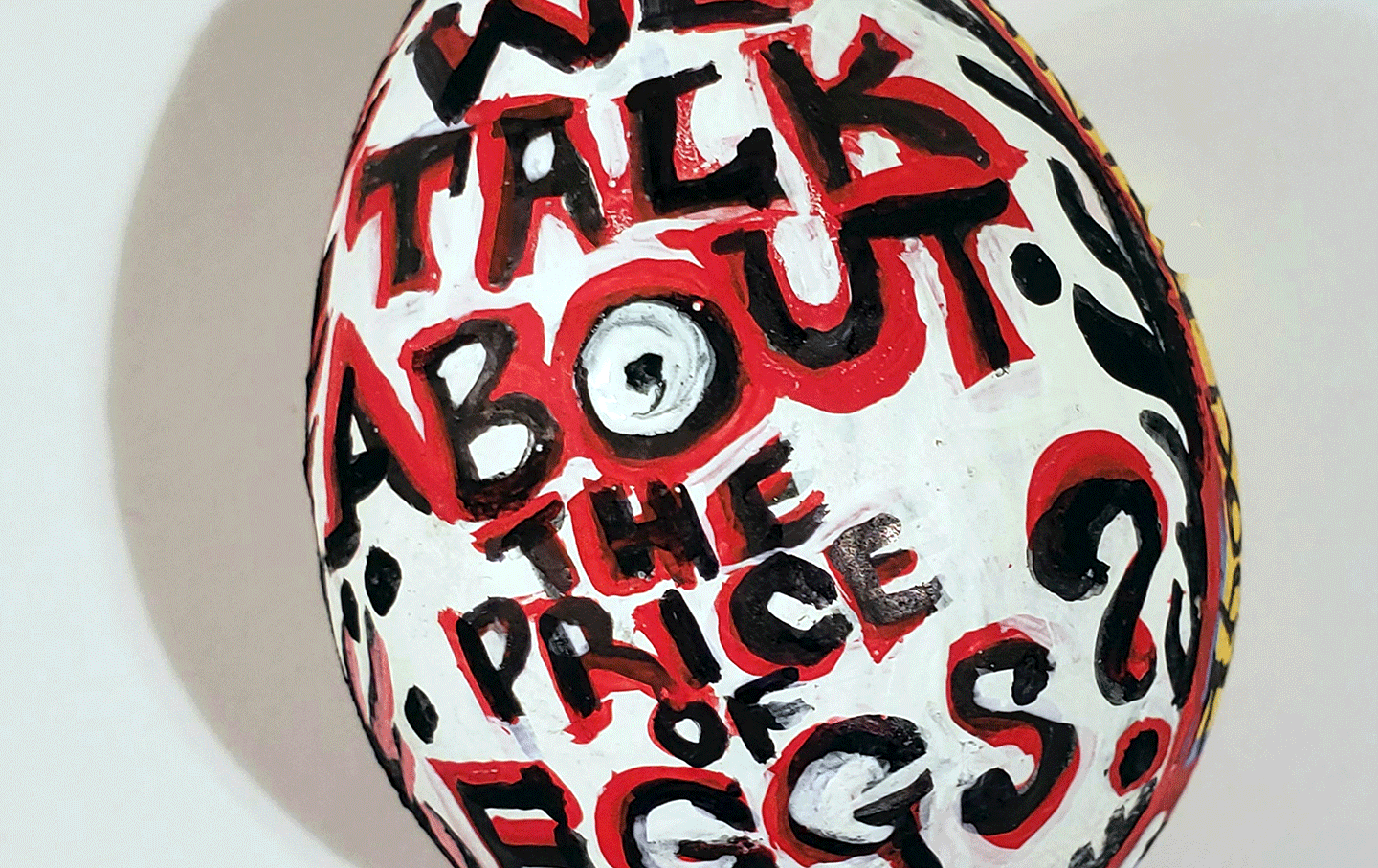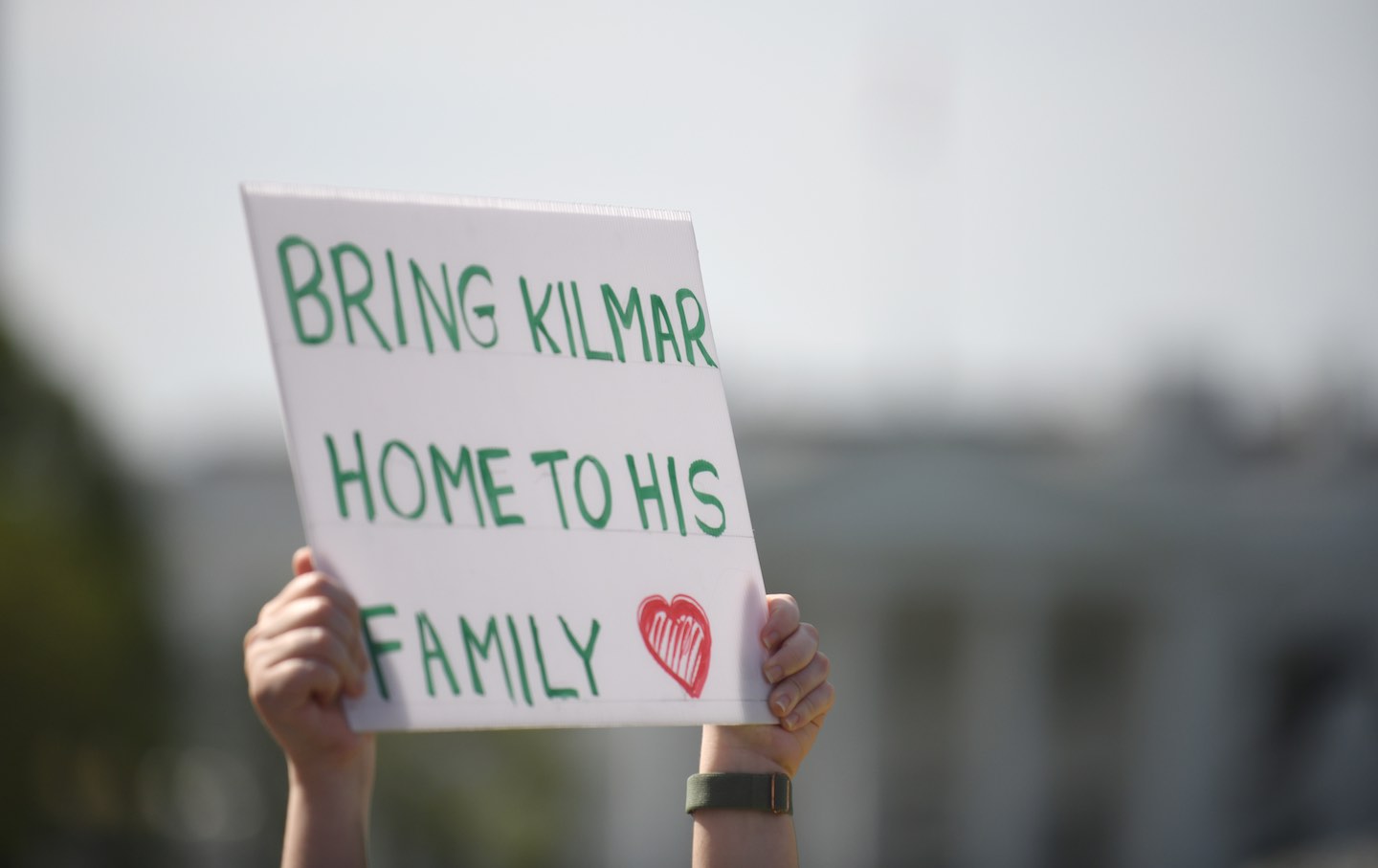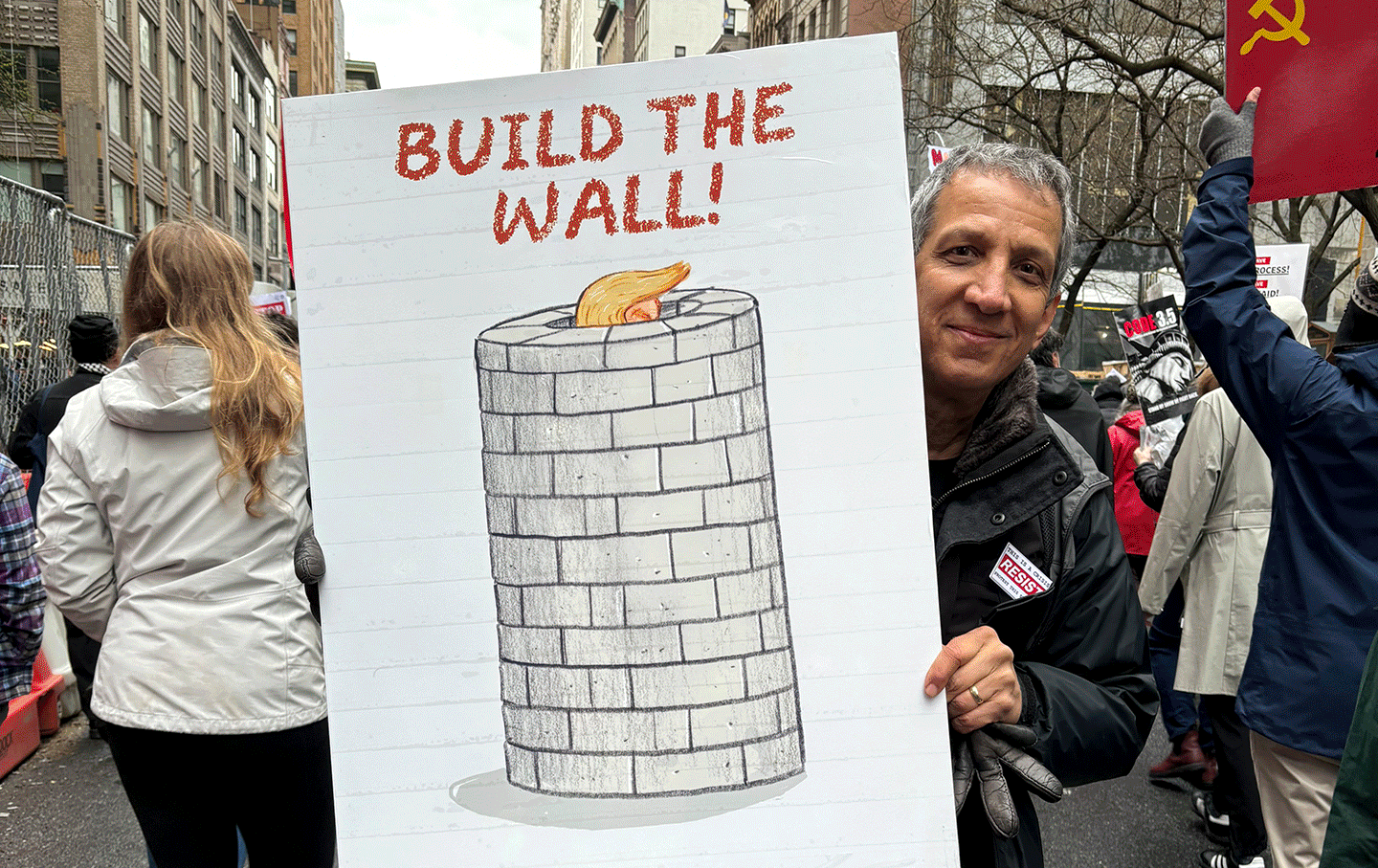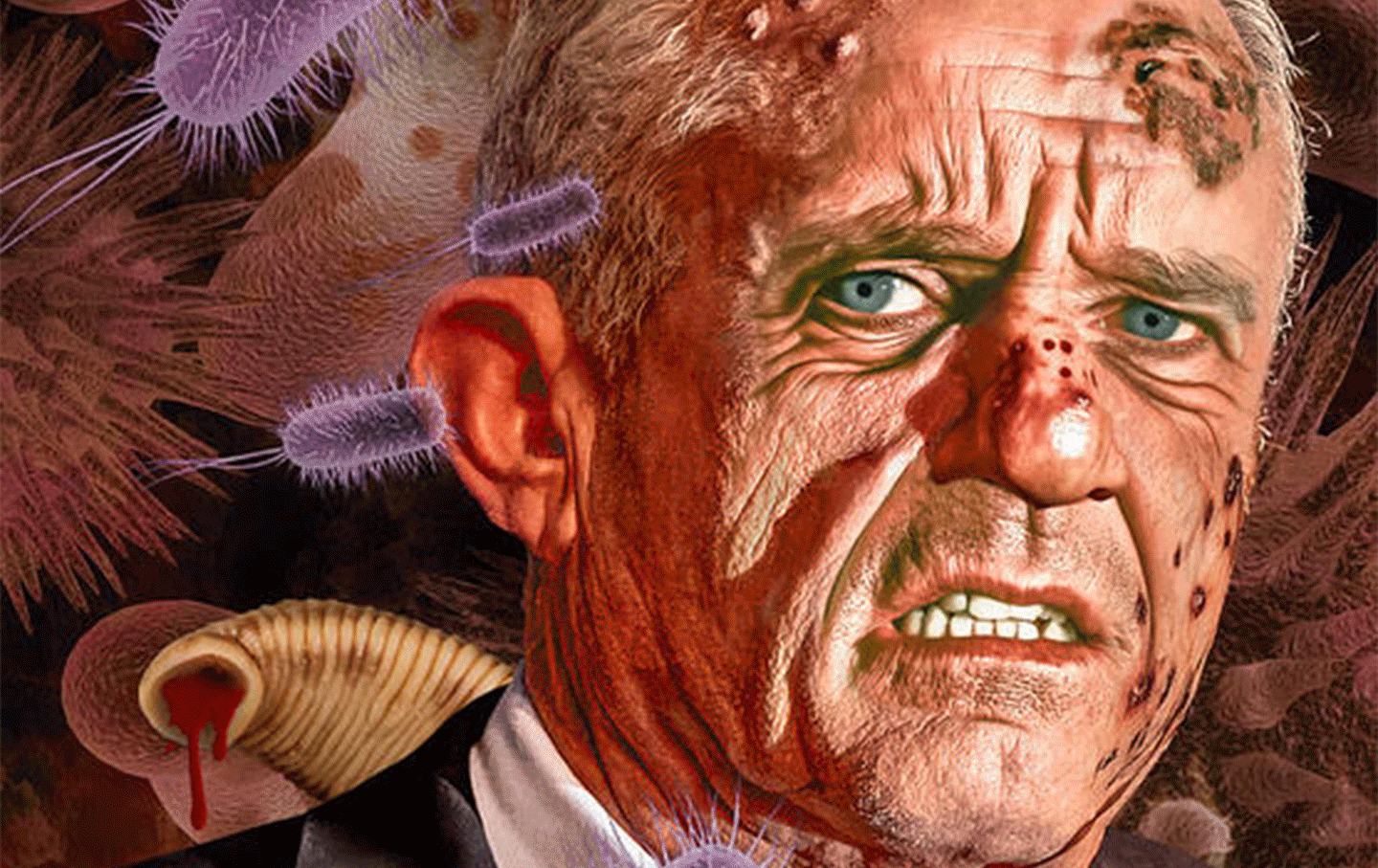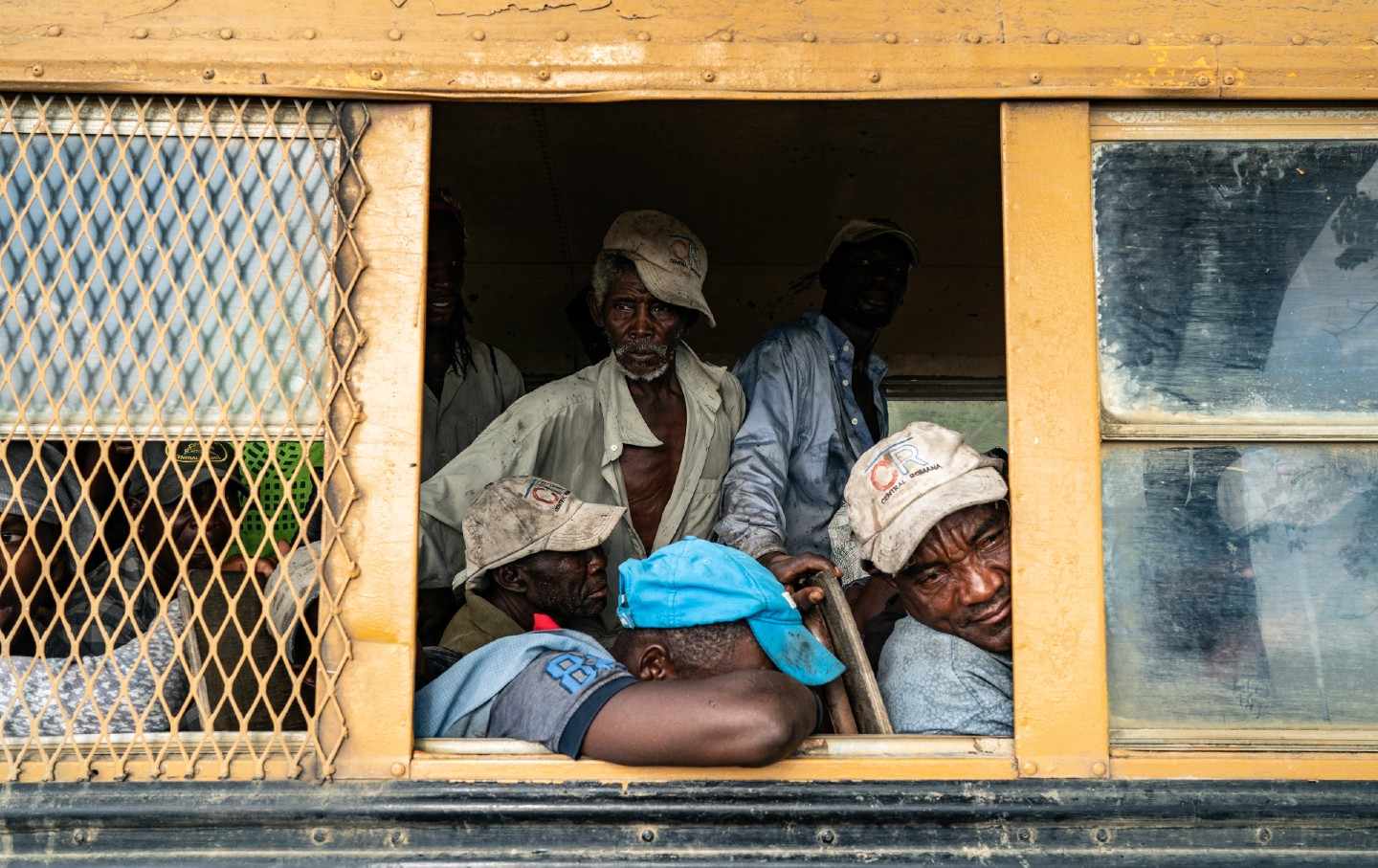The Bishop Who Spoke Truth to Trump Was Doing Her Job
The president may not have approved of Mariann Edgar Budde’s homily at the National Cathedral. But the bishop answered to a higher moral calling.
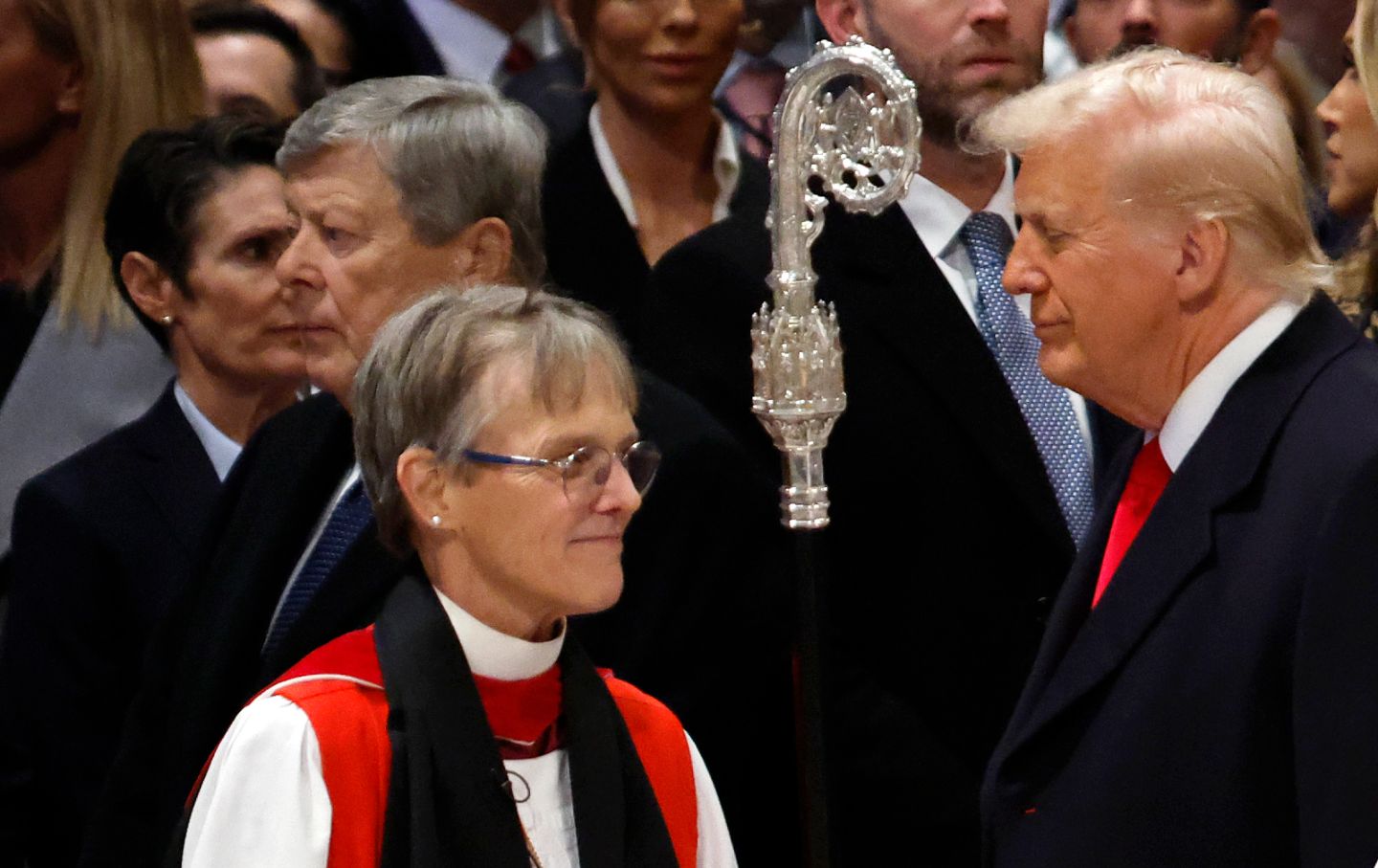
Bishop Mariann Edgar Budde arrives as US President Donald Trump looks on during the National Prayer Service at Washington National Cathedral on January 21, 2025.
(Chip Somodevilla / Getty Images)Bishop Mariann Edgar Budde, who stirred the wrath of Donald Trump and his conservative allies this week with a National Prayer Service homily that urged the newly inaugurated president “to have mercy upon the people in our country who are scared now,” speaks a reflective and compassionate language of faith. In a hopeful embrace of the vast requirements of the biblical commandment to love thy neighbor as thyself, she encourages Americans in the nation’s capital city—especially those with power—to more deeply consider the intersection of their stated beliefs and their actions.
Yet, while her prodding in this regard is invariably rich with nuance and an impulse toward forgiveness, the spiritual leader of the historic Episcopal Diocese of Washington does not hesitate to speak necessary truths in difficult times.
Two years into Trump’s first presidential term, Bishop Budde joined other leaders of Washington’s National Cathedral in criticizing the “escalation of racialized rhetoric from the President of the United States.” In a stark statement, the leaders warned, “When such violent dehumanizing words come from the President of the United States, they are a clarion call and give cover to white supremacists.”
In June of 2020, when authorities cleared the way through a Black Lives Matter demonstration so that Trump—a sharp critic of the protests that erupted following the murder of George Floyd Jr. by a Minneapolis police officer—could hold a Bible aloft outside the parish house of St. John’s Episcopal Church on Lafayette Square near the White House, Budde issued a statement on behalf of the diocese, which said, “In no way do we support the President’s incendiary response to a wounded, grieving nation. In faithfulness to our Savior who lived a life of non-violence and sacrificial love, we align ourselves with those seeking justice for the death of George Floyd.”
The bishop explained, “He took the symbols sacred to our tradition and stood in front of a house of prayer in full expectation that would be a celebratory moment,” and said, “There was nothing I could do but speak out against that.”
It was a similarly honest impulse to say what needed to be said that led the bishop to direct a poignant plea to the 47th president on Tuesday when Trump and Vice President JD Vance attended the traditional post-inauguration National Prayer Service in the cathedral. At the conclusion of her almost 15-minute-long homily, which was steeped in biblical references and self-described “prayers for unity,” Bishop Budde looked toward the president and said:
“Let me make one final plea. Mr. President, millions have put their trust in you. And as you told the nation yesterday, you have felt the providential hand of a loving God. In the name of our God, I ask you to have mercy upon the people in our country who are scared now. There are gay, lesbian and transgender children in Democratic, Republican and independent families, some who fear for their lives. And the people, the people who pick our crops and clean our office buildings, who labor in poultry farms and meatpacking plants, who wash the dishes after we eat in restaurants, and work the night shifts in hospitals, they — they may not be citizens or have the proper documentation, but the vast majority of immigrants are not criminals. They pay taxes and are good neighbors. They are faithful members of our churches and mosques, synagogues, gurdwara and temples.
“I ask you to have mercy, Mr. President, on those in our communities whose children fear that their parents will be taken away, and that you help those who are fleeing war zones and persecution in their own lands to find compassion and welcome here. Our God teaches us that we are to be merciful to the stranger, for we were all once strangers in this land. May God grant us the strength and courage to honor the dignity of every human being, to speak the truth to one another in love and walk humbly with each other and our God for the good of all people, the good of all people in this nation and the world.”
Trump’s initial response was dismissive. “I didn’t think it was a good service,” he said, griping that “they could do much better.”
But as the hours passed, Bishop Budde’s homily went viral. It was widely circulated on social media by prominent faith leaders such as the Rev. James Martin, SJ, the Jesuit priest who serves as editor at large for the Catholic journal America. “This is my Christianity,” declared journalist Charlotte Clymer, who often writes on religious issues. Singer-songwriter Bill Madden hailed Bishop Budde’s address as “a sermon for the ages.” On Wednesday, Joy Behar interviewed the bishop on ABC’s The View and said she had displayed “more fearlessness than anyone in Congress right now.”
Trump’s disdain quickly took on a sharper edge.
In a Tuesday evening social media post he claimed, “The so-called Bishop who spoke at the National Prayer Service on Tuesday morning was a Radical Left hard line Trump hater,” and said, “She brought her church into the World of politics in a very ungracious way. She was nasty in tone, and not compelling or smart.” After restating his criticisms of immigrants, the president concluded, “Apart from her inappropriate statements, the service was a very boring and uninspiring one. She is not very good at her job! She and her church owe the public an apology!”
Trump has sparred with religious leaders before. When Pope Francis criticized the president’s 2016 proposal to build a wall along the southern border of the United States—with the pontiff saying, “A person who thinks only about building walls, wherever they may be, and not building bridges, is not Christian…”—Trump decried the pope’s message as “disgraceful” and accused the Mexican government of “using the pope as a pawn.”
Just this week, Pope Francis objected to Trump’s second-term plans for the mass deportation of immigrants, saying that “it makes the poor wretches who have nothing pay the bill,” and adding, “This won’t do! This is not the way to solve things. That’s not how things are resolved.”
In the United States, there is a long history of pastors calling out presidents. In several of his last great sermons, the Rev. Dr. Martin Luther King Jr. preached against the Vietnam War policies of former President Lyndon Johnson, a Democrat who had stood with Dr. King in support of civil rights. In 2006, when then-President George W. Bush attended the funeral of King’s widow, Coretta Scott King, the Rev. Joseph Lowery, an iconic figure in the civil rights and anti-war movements, recalled, “She summoned the nations to study war no more.… She deplored the terror inflicted by our smart bombs on missions way afar.”
With the president whose administration had three years earlier led the US into war with the claim that Iraq possessed weapons of mass destruction seated just a few feet away from him in the sanctuary of the New Birth Missionary Baptist Church near Atlanta, Lowery declared, “We know now there were no weapons of mass destruction over there. But Coretta knew, and we know, that there are weapons of misdirection right down here. Millions without health insurance. Poverty abounds. For war, billions more, but no more for the poor.”
Reverend Lowery heard criticism of his funeral oration, and he responded thoughtfully. “I certainly didn’t intend for it to be bad manners,” he said. “I did intend for it to call attention to the fact that Mrs. King spoke truth to power. And here was an opportunity to demonstrate how she spoke truth to power about this war and about all wars.”
Popular
“swipe left below to view more authors”Swipe →Bishop Budde offered a similar reflection on her choice to make a call for mercy in her homily. Asked Wednesday if she thought her message was being “misconstrued and politicized,” she replied, “How could it not be politicized, right? We’re in a hyper-political climate.”
But then the bishop explained, “One of the things I caution about is the culture of contempt in which we live that immediately rushes to the worst possible interpretations of what people are saying and to put them in categories—such as the ones you just described. That’s part of the air we breathe now. And I was trying to speak a truth that I felt needed to be said, but to do it in as respectful and kind a way as I could, and also to bring other voices into the conversation, voices that had not been heard in the public space for some time.”
Hold the powerful to account by supporting The Nation
The chaos and cruelty of the Trump administration reaches new lows each week.
Trump’s catastrophic “Liberation Day” has wreaked havoc on the world economy and set up yet another constitutional crisis at home. Plainclothes officers continue to abduct university students off the streets. So-called “enemy aliens” are flown abroad to a mega prison against the orders of the courts. And Signalgate promises to be the first of many incompetence scandals that expose the brutal violence at the core of the American empire.
At a time when elite universities, powerful law firms, and influential media outlets are capitulating to Trump’s intimidation, The Nation is more determined than ever before to hold the powerful to account.
In just the last month, we’ve published reporting on how Trump outsources his mass deportation agenda to other countries, exposed the administration’s appeal to obscure laws to carry out its repressive agenda, and amplified the voices of brave student activists targeted by universities.
We also continue to tell the stories of those who fight back against Trump and Musk, whether on the streets in growing protest movements, in town halls across the country, or in critical state elections—like Wisconsin’s recent state Supreme Court race—that provide a model for resisting Trumpism and prove that Musk can’t buy our democracy.
This is the journalism that matters in 2025. But we can’t do this without you. As a reader-supported publication, we rely on the support of generous donors. Please, help make our essential independent journalism possible with a donation today.
In solidarity,
The Editors
The Nation

